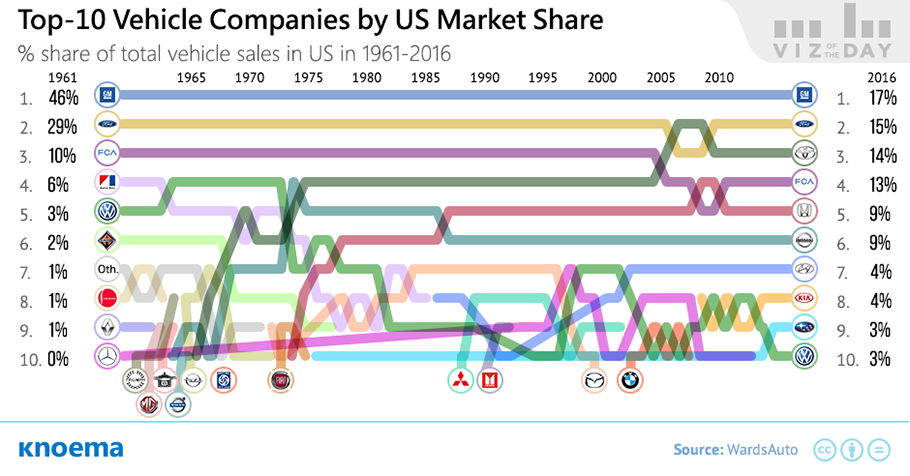The Auto Industry's Standoff: Dealers Vs. EV Mandates

Table of Contents
Dealer Resistance to EV Mandates
Dealers are voicing strong resistance to the rapid implementation of EV mandates, citing several key challenges. These concerns threaten the viability of many dealerships, particularly smaller, independent ones, and highlight the significant disruption this transition represents.
Investment Concerns
Dealerships face substantial upfront investment costs to support EV sales and service. This represents a major barrier to entry for many.
- High cost of installing Level 2 and DC fast chargers: The infrastructure required to charge EVs, particularly the faster DC fast chargers, is expensive to install and maintain.
- Need for specialized EV technician training: EVs require specialized knowledge and tools for repair and maintenance, demanding significant investment in training existing staff and hiring new technicians.
- Upgrading service bays to accommodate high-voltage batteries: Service bays need modifications to safely handle the high-voltage batteries found in EVs, adding to the overall cost.
This financial burden disproportionately affects smaller, independent dealerships, potentially leading to closures and consolidation within the industry. The lack of clear, readily available funding options exacerbates this problem, forcing many dealers to choose between significant investment or potential business failure in the face of upcoming EV sales quotas mandated by governments.
Inventory Management Challenges
Managing EV inventory presents unique challenges compared to traditional gasoline-powered vehicles.
- Slower sales cycles for EVs: EVs often have slower sales cycles than gasoline cars, tying up capital in unsold inventory.
- Higher initial cost of EVs impacting consumer affordability: The higher purchase price of EVs compared to internal combustion engine (ICE) vehicles limits consumer accessibility and impacts demand.
- Difficulties in predicting EV demand: Accurate forecasting of EV demand remains challenging, making it difficult for dealers to manage their inventory effectively and avoid overstocking or shortages.
The shift towards EVs requires dealers to adapt their sales strategies and inventory management systems, adding complexity and expense, and requiring sophisticated data analysis to accurately predict demand and manage stock levels.
Sales Training and Expertise
The transition to EVs demands a significant upskilling of sales staff.
- Need for comprehensive EV training programs for sales staff: Sales personnel need thorough training on EV technology, features, and benefits.
- Understanding of EV technology and charging infrastructure: Sales staff must be able to answer customer questions about charging times, range anxiety, and other aspects of EV ownership.
- Addressing consumer concerns about range anxiety and charging times: Addressing common consumer concerns regarding range and charging infrastructure is crucial for successful EV sales.
Dealers need access to adequate and readily available training programs to ensure their sales teams are equipped to effectively sell and service EVs, ensuring customer satisfaction and driving sales.
Automakers' Push for EV Adoption
Automakers are facing immense pressure to accelerate EV adoption, driven by several factors.
Meeting Regulatory Requirements
Automakers are under increasing pressure to meet stringent EV sales targets imposed by governments worldwide.
- Stricter emission regulations and penalties: Governments are imposing increasingly strict emission regulations and hefty fines for non-compliance.
- Government incentives and subsidies for EV adoption: Governments are offering incentives and subsidies to promote EV adoption, creating a competitive landscape.
- Growing consumer demand for sustainable vehicles: Consumer demand for environmentally friendly vehicles is steadily rising, driving the need for greater EV production.
Compliance with EV mandates is not just about avoiding penalties; it is crucial for maintaining market share and demonstrating a commitment to environmental responsibility.
Direct-to-Consumer Sales Models
Some automakers are bypassing dealerships and exploring direct-to-consumer sales models for their EVs.
- Increased control over the brand experience: Direct sales allow automakers greater control over the customer experience and brand messaging.
- Potential for higher profit margins: Eliminating the dealer markup can lead to increased profit margins for automakers.
- Reduced reliance on traditional dealer networks: Direct sales models reduce the automaker's dependence on the traditional dealer network.
This strategy, while potentially beneficial for automakers, creates further friction and uncertainty within the dealer network, leading to conflict and potential legal challenges.
The Importance of a Robust Charging Infrastructure
Automakers recognize the crucial role of a robust charging infrastructure in facilitating EV adoption.
- Investment in public charging networks: Automakers are investing in and partnering with companies to expand public charging infrastructure.
- Collaborations with energy companies: Partnerships with energy companies are key to ensuring reliable and widespread charging accessibility.
- Development of home charging solutions: Automakers are developing and promoting home charging solutions to make EV ownership more convenient.
A well-developed charging infrastructure is essential to address range anxiety and ensure the convenience and practicality of EV ownership, driving up consumer confidence and sales.
The Future of the Dealership Model in the Age of EVs
The dealership model needs to adapt significantly to thrive in the age of EVs.
Adaptation and Transformation
Dealerships must actively adapt their business models to remain competitive.
- Investing in EV-specific infrastructure and training: Investments in charging stations, specialized tools, and employee training are crucial.
- Developing new sales and service strategies: Dealers need to adapt their sales and service approaches to suit the unique needs of EVs and their customers.
- Embracing digital technologies for enhanced customer experience: Leveraging online tools and digital platforms to improve customer experience is key.
Successful dealerships will be those that proactively embrace change, invest in the necessary infrastructure, and adapt their strategies to meet the evolving market demands.
Potential for Collaboration
Collaboration between automakers and dealers is vital for a smoother transition.
- Shared investment in charging infrastructure: Joint investment in charging networks can reduce the burden on individual dealerships.
- Joint marketing and sales initiatives: Collaborative marketing campaigns can raise awareness and drive EV sales.
- Development of comprehensive EV training programs: Shared responsibility for training programs ensures consistent and high-quality training across the dealer network.
A collaborative approach can minimize disruption, ensure a smooth transition, and foster a more sustainable automotive future, benefitting both automakers and dealers.
Conclusion
The ongoing standoff between auto dealers and the push for EV mandates highlights the complexities of transitioning to a greener automotive future. While dealers face significant challenges in adapting to EV technology and infrastructure requirements, automakers are driven by regulatory pressures and the increasing consumer demand for electric vehicles. The success of this transition hinges on effective collaboration, shared investment, and innovative solutions that address the concerns of all stakeholders. Finding a balance between supporting established dealer networks and meeting ambitious EV mandates will be critical for the long-term health and growth of the automotive industry. To learn more about the implications of EV mandates and how the automotive industry is evolving, continue researching current trends and government regulations.

Featured Posts
-
 Cerundolo En Cuartos De Indian Wells Tras Bajas De Fritz Y Gauff
Apr 27, 2025
Cerundolo En Cuartos De Indian Wells Tras Bajas De Fritz Y Gauff
Apr 27, 2025 -
 Private Credits Growing Instability Examining The Cracks Before The Crisis
Apr 27, 2025
Private Credits Growing Instability Examining The Cracks Before The Crisis
Apr 27, 2025 -
 20
Apr 27, 2025
20
Apr 27, 2025 -
 Controversial Autism Research Appointment Sparks Outrage
Apr 27, 2025
Controversial Autism Research Appointment Sparks Outrage
Apr 27, 2025 -
 Canada The New Top Choice For International Travelers
Apr 27, 2025
Canada The New Top Choice For International Travelers
Apr 27, 2025
